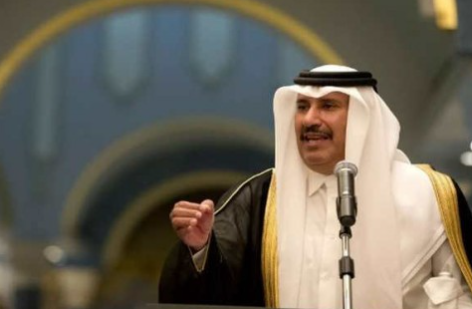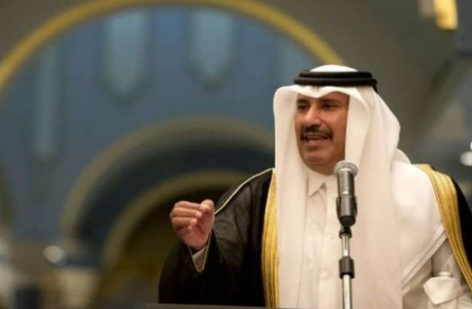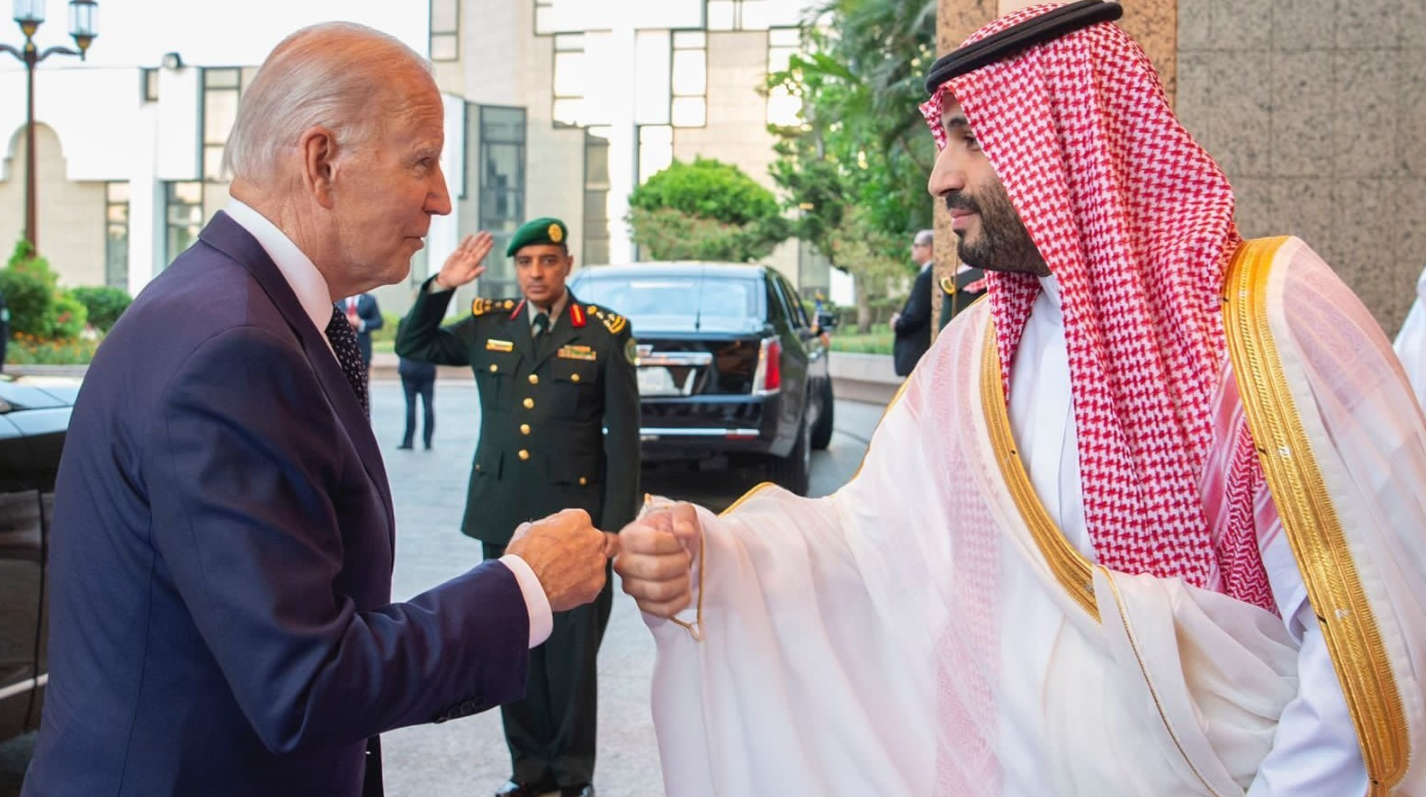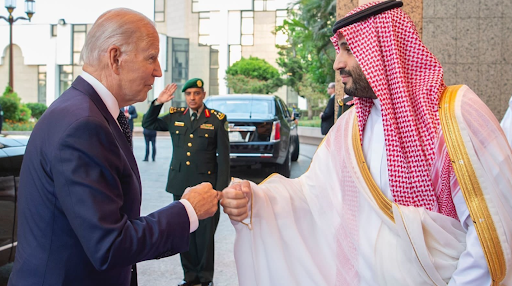
Brokered by Chinese diplomacy, National Security Apparatuses in Iran and Saudi Arabia greenlight the resumption of diplomatic relations between the two countries
China’s quiet diplomacy in the Middle East turned a low-level conflict with Iran into a consequential development that could change the trajectory of region.
For months and years, Iraq and Oman have been working hard to bring the two regional powers to a point where they will be able to talk to each other directly. Nothing happened. Within weeks, and since the Chinese president’s visit to Saudi Arabia, China relied on its excellent relations with Iran and exploited Saudi Arabia’s interest in an Asia pivot to bring these countries together.
Direct and meaningful talks between Iran and Saudi Arabia will have secondary effects on the ongoing conflicts in Syria, Iraq, Yemen, and Afghanistan.
*****
And he announced in a joint statement that Iran and Saudi Arabia agreed to resume bilateral relations. As it was stated at the conclusion of the completed talks between the two countries, that the Islamic Republic of Iran and the Kingdom of Saudi Arabia agreed to resume diplomatic relations and reopen embassies and representations within two months.
At the conclusion of these talks, a tripartite statement was issued today, Friday, in Beijing, signed by Ali Shamkhani, Secretary of the Supreme National Security Council, Musaed bin Muhammad Al-Aiban, the Saudi Minister of State, Advisor to the Council of Ministers and National Security Adviser, and Fang Yi, a member of the Political Bureau of the Central Committee of the Communist Party and Chairman. Office of the CPC Central Committee on Foreign Affairs and member of the Government Council of the People's China.
He added, the Islamic Republic of Iran and the Kingdom of Saudi Arabia express their gratitude to the Republic of Iraq and the Sultanate of Oman for hosting the talks between the two sides in the years (2021 to 2022) and the leadership and government of the People's Republic of China for hosting and supporting the talks that took place in this country and the efforts made to make them a success.
He continued, as a result of the completed talks, the Islamic Republic of Iran and the Kingdom of Saudi Arabia agreed to resume diplomatic relations and reopen embassies and representations within two months.
The statement said that the foreign ministers of the two countries will meet to implement this decision and make the necessary arrangements for the exchange of ambassadors.
The two countries affirmed respect for sovereignty and non-interference in each other's internal affairs, within the framework of implementing the security cooperation agreement signed on 4/17/2001 as well as the general economic, trade and investment agreement and technical, scientific, cultural, sports and youth cooperation signed on 5/27/1998.
The statement indicated that the three countries declare their firm determination to employ all efforts to promote peace and security at the regional and international levels.
These developments came just days from the breaking news of a visit by Iran's national security chief to a foreign country. The cryptic news bulletin did not mention the country or offer any other context. It mere stated that:
News sources reported that Admiral Ali Shamkhani held very important talks in a foreign country during the past few days.
And Tasnim International News Agency reported that the Secretary of Iran's Supreme National Security Council held very important talks in a foreign country over the past few days.
According to news sources, the imminent announcement of the results of these talks will cause important developments.
Then came the major announcement:
An Iranian-Saudi agreement to resume diplomatic relations and open embassies
In a joint statement, Iran and Saudi Arabia announced the agreement to resume dialogue and diplomatic relations, and to reopen embassies in the two countries within two months.
According to the joint statement, "the resumption of dialogue between Tehran and Riyadh comes in response to the Chinese president's initiative," during Iranian-Saudi meetings and negotiations that took place between March 6 and 10 in Beijing.
The two countries expressed their appreciation for China's hosting and support for the recent talks, and their gratitude to Iraq and the Sultanate of Oman for hosting the talks between the two sides during the years 2021 and 2022.
According to the statement, Tehran and Riyadh affirmed the principle of respect for sovereignty and non-interference in the internal affairs of the two countries, and the implementation of the security cooperation agreement signed in 2001.
Iran, Saudi Arabia and China announced their intention to use all diplomatic efforts to promote regional and international peace and security.
And Ali Shamkhani, Secretary of the Iranian Supreme National Security Council, stated that he had conducted intensive negotiations with his Saudi counterpart to resolve the outstanding issues between the two countries once and for all.
He stressed that removing misunderstandings and looking towards the future in relations between Riyadh and Tehran "will certainly lead to strengthening regional security," expressing his appreciation for China's constructive role in supporting the development of relations between countries to enhance the level of international cooperation.
Shamkhani pointed out that the five rounds of negotiations that took place in Iraq and Oman were influential in reaching the final agreement in Beijing, appreciating the efforts of the two countries.
The foreign ministers of Iran and Saudi Arabia will meet to implement this agreement and make the necessary arrangements for the exchange of ambassadors soon.
*****
They noted that it is in China's interest to ease tensions between Iran and the Gulf states to ensure energy security and the success of the "Belt and Road" initiative, but it is not easy to succeed in that, as the United States of America will not allow the success of the Chinese initiative to improve relations between Iran and Saudi Arabia.
*****
Before Raisi's visit to China, they noted that the Iranian President Ebrahim Raisi will visit China at the invitation of Chinese President Xi Jinping from February 14 to 16, and will meet his Chinese counterpart, in their second meeting after their first meeting on the sidelines of the Shanghai Organization summit in Uzbekistan last September. . This will be the first visit of an Iranian president to China since his election in 2021, and he will also be the first head of state to visit China in the Chinese New Year.
The Kuwaiti newspaper "Al-Jarida" had published several days ago an article in which it stated that preparations were underway for an upcoming visit by the Iranian president to Beijing. The day after the news was published, Iranian Foreign Ministry spokesman Nasser Kanaani revealed President Raisi's upcoming visit to China.
The visit of the Iranian president to China comes after the statement of the Chinese-Gulf summit, which dealt with the disputed islands between Iran and the United Arab Emirates and the Iranian nuclear agreement, displeased Tehran, which summoned the Chinese ambassador there, and expressed its deep disturbance at what was stated in the summit statement.
In turn, the Chinese ambassador stressed his country's respect for Iran's territorial integrity, and considered that the goal of the Chinese president's visit to Riyadh is to balance relations, support peace and stability in the region, and use dialogue as a tool to solve problems.
To ease Tehran's anger, Beijing sent Chinese Vice Premier Hu Chunhua to Iran, who, during his meeting with the Iranian president, stressed China's determination to develop its comprehensive strategic partnership with Iran.
And during the month in which the Chinese president visited Saudi Arabia, a Chinese consulate was opened in the Bandar Abbas region, and it voted against removing Iran from the United Nations Women's Committee.
"The resumption of diplomatic relations between Saudi Arabia and Iran is a 'victory' for dialogue and peace," Chinese Foreign Minister Chen Wangyi said on Friday.
The Chinese Foreign Ministry quoted Wang as saying at the conclusion of the dialogue between Saudi Arabia and Iran that the resumption of relations is "great good news" in the current turbulent world.
Wang added that China will continue to play a constructive role in dealing with thorny issues in the world today and will show its "responsibility" as a major country.
Saudi Foreign Minister on the agreement with Iran: Our countries share one destiny and common denominators
Saudi Foreign Minister Faisal bin Farhan said, "The resumption of relations between Riyadh and Tehran stems from our vision based on favoring political solutions."
Bin Farhan added that the countries of the region "are united by one destiny and common denominators, which make it necessary for us to participate together in building a model of prosperity and stability."
For his part, Musaed Al-Aiban, Saudi National Security Adviser, said that Saudi Arabia welcomes the Chinese president's initiative to develop relations between the Kingdom and Iran.
Al-Aiban pointed out that "the Saudi-Iranian agreement is the culmination of the discussions that took place during the current week," stressing that Riyadh was keen to make the agreement with Iran within the framework of fraternal ties, and was also keen to open a new page and adhere to international covenants.
According to the Saudi National Security Adviser, "The Saudi-Iranian agreement is a pillar in the development of relations between countries and the promotion of stability in the region."
As for the Iranian side, the Secretary of the Iranian Supreme National Security Council, Ali Shamkhani, said that the recent visit of the Iranian President, Ebrahim Raisi, to China provided the basis for the formation of new and serious negotiations between the delegations of Iran and the Kingdom of Saudi Arabia.
Shamkhani added that the talks between the two countries were frank, transparent, comprehensive and constructive, indicating that removing misunderstandings and looking to the future in relations between Tehran and Riyadh will lead to the development of regional stability and security, and increase cooperation between the Gulf states and the Islamic world regarding managing existing challenges.
The visit also comes at a time of raging conflict between China and the United States of America, and the US Secretary of State postponing his visit to Beijing after the balloon crisis and the subjection of Iranian and Chinese companies to US sanctions.
US official reaction:
Reacting to the news, a White House spokesman confirms that Washington is aware of reports about the resumption of diplomatic relations between Iran and Saudi Arabia, and the communications coordinator in the US National Security Council, John Kirby, said: We welcome any efforts that help end the war in Yemen and reduce tension in the Middle East.
As for the American media, the Wall Street Journal considered that the agreement between the two countries represents a "diplomatic victory for Beijing, in a region where the United States has long dominated geopolitics."
Reactions from the region:
The former occupation prime minister, Naftali Bennett, attacked the current prime minister, Benjamin Netanyahu, against the background of the Iran-Saudi agreement, noting that it was "a resounding failure, stemming from the combination of political neglect, general weakness, and an internal conflict in the state."
Bennett pointed out that "the resumption of relations is a dangerous and dangerous development for Israel, and represents a political victory for Iran."
On the official Arab level, the Sultanate of Oman said: "We hope that the resumption of Saudi-Iranian relations will contribute to strengthening the pillars of security and stability in the region and consolidating positive and constructive cooperation that benefits all peoples of the region and the world."
The Iraqi Ministry of Foreign Affairs welcomed the agreement reached between the two countries.
The Foreign Ministry indicated that "the efforts made by the Iraqi government in this context, through Baghdad hosting the dialogue rounds between the two sides, and the solid base it established for the dialogues that followed through the Sultanate of Oman and the People's Republic of China, leading to the moment of agreement, which will be reflected in the integration of relations between the two sides, and give A qualitative impetus in the cooperation of the countries of the region, with the aim of a framework that fulfills the aspirations of all parties and heralds the launch of a new phase.






























































